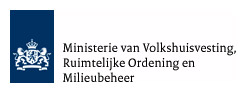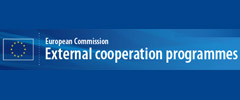Dezentralized ecological wastewater solutions are healthy and affordable for poor communities
MAMA-86 Ukraine and Women in Europe present conference results to press in Mexico City
27.03.2006 |WECF Press Release
Press Area, Benamex, Mexico City
Download the press release.
MAMA-86 Ukraine, Women in Europe and Centro Mujeres Tonantzin present urgent need for dezentralized ecological water and wastewater solutions for poor communities in Eastern Europe and Mexico
The OECD – Organisation for Economic Cooperation and Development affirmed at Session 3.07 that currently no funding is avaiable for poorest communities, particularly in rural areas, in Eastern Europe. In Mexico, migrants arriving in the suburbs of Mexico city have little chance of obtaining any connection to a sewage system soon.
The session promoted a double strategy: priority financing for water and sanitation for rural and slum areas, and, promoting low-cost alternative technologies which can be constructed and managed locally.
Immediate reduction of child mortality and morbidity – and improvement of women’s situation
In this session it are really the local women who speak, and present how - without hardly any funds – they are building dry ecological sanitation and improve water supply. By having build 250 inhouse dry toilets in the slums of Ciudad Juárez in Mexico City, the health of the families and their neighbours has greatly improved, leading to a remarkable reduction in gastro-intestinal and respiratory diseases. In Armenia, by providing house connections, women no longer need to carry up to 40 buckets of water per day to their houses. In addition, now that their water is metered, they pay less then before because they can control how much they use.
Svetlana Slesarenok, director of MAMA-86 Odessa: “by building dry ecotoilets for schools, not only do the children no longer need to use smelly, freezing toilets outside the schoolyard, but we also protect the drinking water in the villages, as pit latrines pollute the water with feacal bacteria.”
MAMA-86 and Women in Europe have helped to initiate the Women’s Coalition of the WWF-4, where over 50 women from all over the world, including from the Women for Water Partnership are presenting in 8 sessions their local actions and the lessons learned to politicians and policy makers.
Contact: Sascha Gabizon, WECF, international director or
Monica Diaz +52 33 36295966
Women in Europe, +31 30 2310300, wecf@wecf.org
































